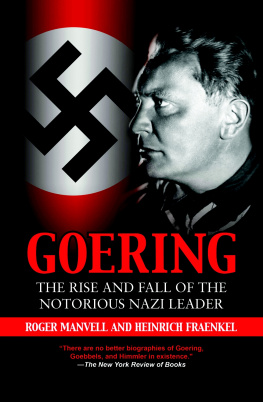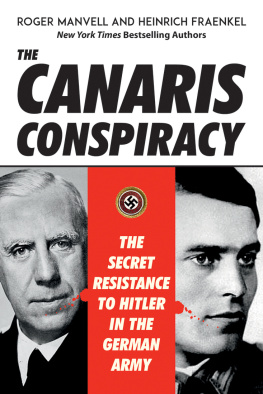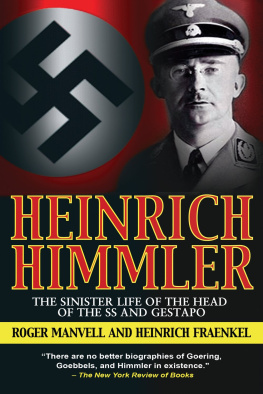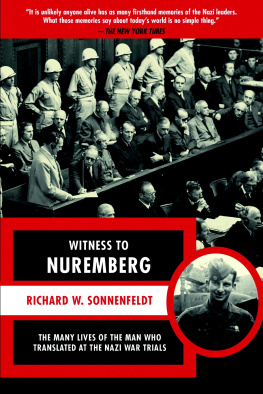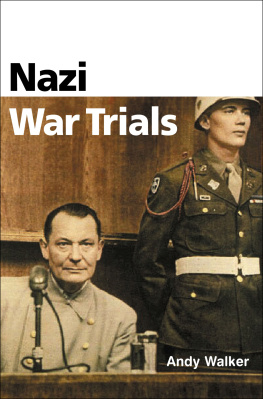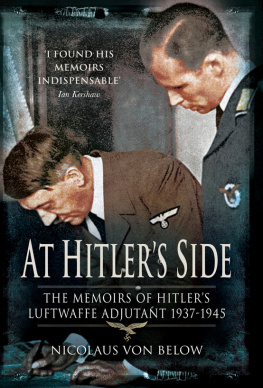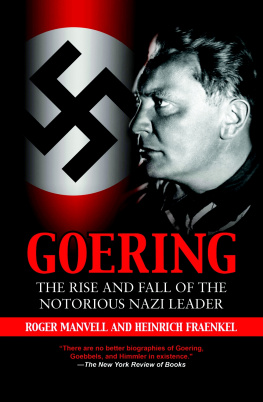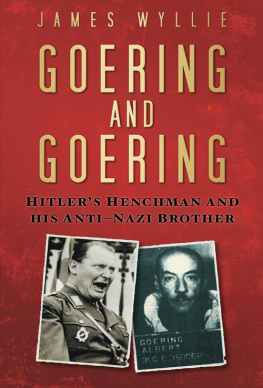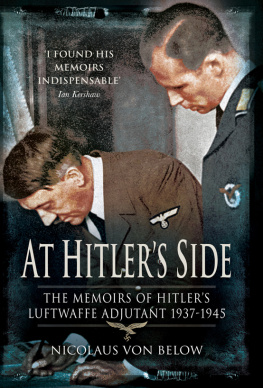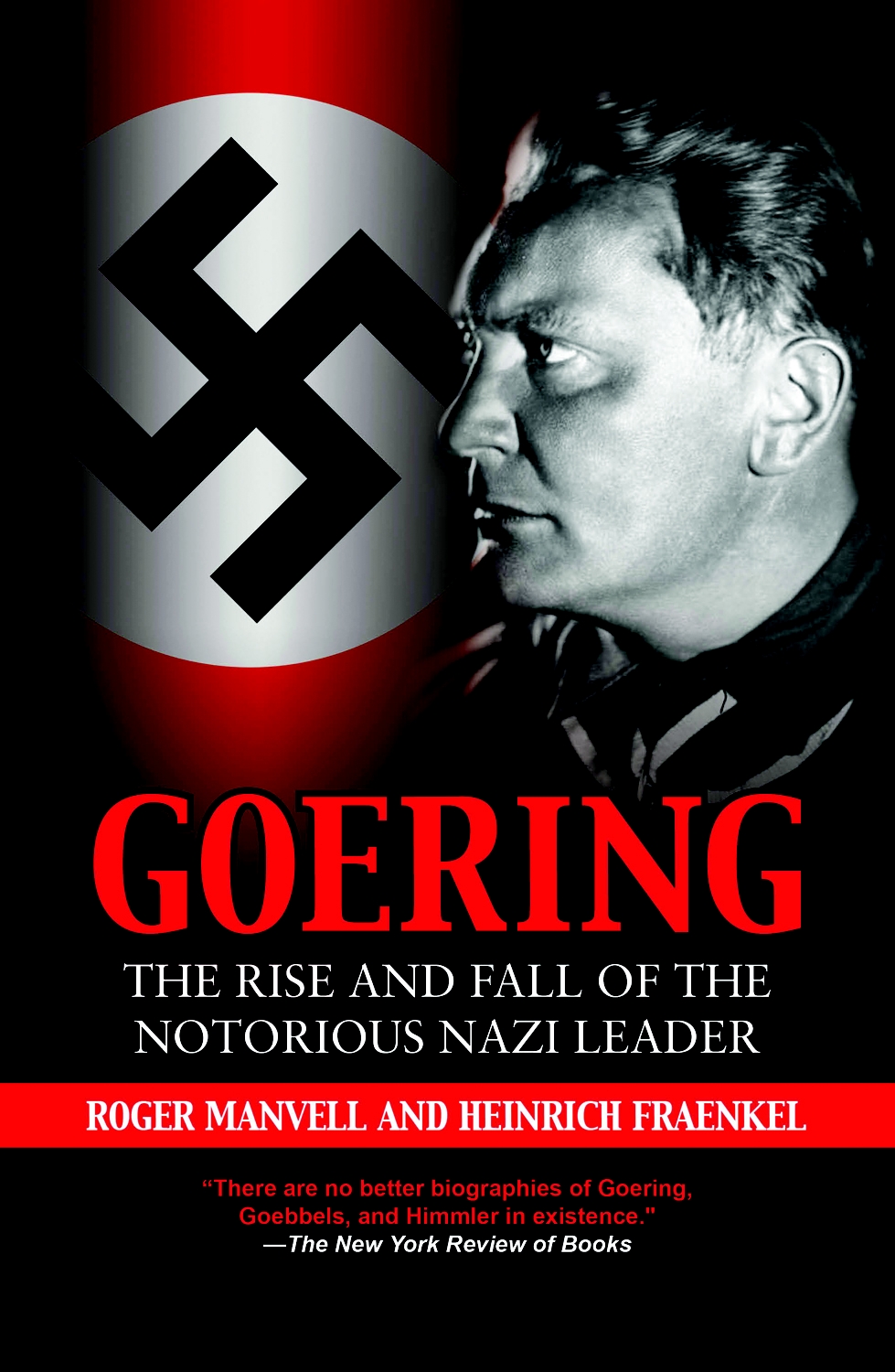APPENDIX
The Reichstag Fire
DURING 1960 the popular German journal Der Spiegel published a series of articles by Dr. Fritz Tobias, an official of the Social Democratic Party, challenging the assumption, which at that time was almost universally accepted, that the Reichstag fire on the night of February 27, 1933, was instigated by the Nazis; that Goering and Goebbels, if not Hitler himself, were implicated; that Goerings motive had been to hasten the mass arrest of the leading members of the Communist Party, who were represented as responsible for burning the Reichstag as part of a plot to overthrow the new Nazi regime during its first weeks in power; and that to this end the Nazis introduced the Dutch incendiary van der Lubbe into the Reichstag and then attempted to prove at the trial that he was a Communist agent. (Van der Lubbe, when he could be induced to speak at all, always boasted that he alone was responsible for the fire, yet it was shown at the trial that he could have been in the building for only a comparatively short while, in spite of which the fire he was said to have started spread with tremendous rapidity and caused great damage.)
The claim now made by Dr. Tobias in his articles in Der Spiegel was that van der Lubbe was wholly responsible for the fire, that he had set about the arson with great skill and efficiency, and that the Nazis could not in the end be proved to have had anything to do with it. The articles naturally caused a sensation, and the argument was taken up in Britain by A.J.P. Taylor in History Today (August 1960) and in the Sunday Express (January 22, 1961). Dr. Tobias subsequently elaborated his case in a book of considerable length, Der Reichstagsbrand (Grote Verlag, 1962).
Dr. Tobias originally undertook his investigation in order to prove that the Nazis were indeed implicated in the fire, and it was only during his researches that he came to believe the opposite. It did not prove difficult for him to refute the obvious falsifications contained in the notorious Brown Book of the Hitler Terror, originally published in Paris in 1934 under the auspices of the Communist Party in order to make Goering appear the central figure in the plot. He also disproved other groundless allegations, for example that van der Lubbe was a homosexual.
But he has allowed his refutations to carry him too far, as Heinrich Fraenkel has shown in an extensive review of Dr. Tobias book in Der Monat (May 1962). In the course of Fraenkels researches on Goering in Germany and Holland he found evidence that convinced him beyond any doubt of van der Lubbes psychological maladjustment and his pathological desire for both publicity and martyrdom; of his physical inability to have fired the Reichstag entirely alone; and of his association with the Nazis immediately prior to the fire. Summarized, this evidence is as follows:
1. The testimony of Simon Harteveld of Leiden, the man who trained van der Lubbe when he was a masons apprentice, that in his teens he became permanently almost blind as the result of a practical joke played on him while he was working on a building site. Everyone who had dealings with van der Lubbe acknowledges the poorness of his vision.
2. The testimony of Harteveld that he indoctrinated van der Lubbe with a particular brand of left-wing politics which was against the party line of the Communists and encouraged him to take individual action on behalf of the proletariat. Van der Lubbe suffered from the psychological maladjustment known as the Herostratus complex, named after the man who burned the temple at Ephesos in order to win fame. The effects of this complex took various forms in van der Lubbes career before the period of the Reichstag fire. He attempted to gain publicity for himself by starting to swim the Channel without any training or preparation; he tried to claim leadership in a strike at the Tielemann factory with which he had had nothing to do, in order to win fame through his consequent victimization. At another factory he claimed to have smashed windows when the damage had been done by other workers. He was, in fact, determined to be victimized for something.
3. The testimony of a trained nurse, Frau Mimi Storbeck, formerly a German and now a naturalized Dutch subject who is in charge of a childrens home in Haarlem. A few days before the fire, when Frau Storbeck was a district nurse in Berlin, van der Lubbe was brought to her by two S.A. men who described him as a foreign vagrant in need of public assistance. The S.A. men did all the talking, and Frau Storbeck realized that van der Lubbe was nearly blind. Although he seemed to be in a state of starvation, he refused to eat the food she offered him.
4. The testimony of Dr. Stomps of Haarlem, the Dutch lawyer who was sent by a committee set up in Holland to investigate van der Lubbes case in 1933, at the time of the trial. For a full hour he tried in vain to persuade the defendant in his cell to sign the official request which would have given him the right to have the help of a Dutch lawyer in a German court. Van der Lubbe refused to speak to him. Dr. Stompss final words to him were, Dont you want to be saved from execution? Van der Lubbe turned on him with a grin and uttered one word, No!
The facts concerning the Reichstag fire are at present being officially investigated by the Institut fr Zeitgeschichte in Munich. Meanwhile, no evidence has come to light so far which directly incriminates Goering. But it seems certain now that the Nazis were in some way involved with van der Lubbe, the official incendiary.
BIBLIOGRAPHY
The following bibliography contains only those books which are of special importance or interest in the study of Goerings career; it is not intended to represent the history of Germany or of the Third Reich, though certain general histories are included because of their many references to Goering. Readers are referred also to the introductory remarks to the Notes on each chapter, where the titles of books which proved to be of particular importance as sources are given.
Collections of Official Papers
CIANOS DIPLOMATIC PAPERS, edited by Malcolm Muggeridge. London: Odhams, 1948.
DOCUMENTARY BACKGROUND TO WORLD WAR II, edited by James W. Gantenbein. New York: Columbia University Press, 1948.
DOCUMENTS ON BRITISH FOREIGN POLICY, 1919-39. Second Series, Vols. I-VIII; Third Series, Vols. I-IX. London: His Majestys Stationery Office, 1946 onward.
DOCUMENTS ON GERMAN FOREIGN POLICY, 1918-45. Series C, Vols. I-III; Series D, Vols. I-IX. London: H.M.S.O., 1949 onward.
DOCUMENTS CONCERNING GERMAN-POLISH RELATIONS AND THE OUTBREAK OF HOSTILITIES BETWEEN GREAT BRITAIN AND GERMANY. London: H.M.S.O., 1939.
DOCUMENTS AND MATERIALS RELATING TO THE EVE OF THE SECOND WORLD WAR, Vols. I and II. Moscow: Foreign Languages Publishing House, 1948.
FRENCH YELLOW BOOK. DIPLOMATIC DOCUMENTS, 1938-39. London: Hutchinson, 1939.
HITLER DIRECTS His WAR, edited by Felix Gilbert. New York: Oxford University Press, 1951.
NAZI CONSPIRACY AND AGGRESSION, Vols. I-X. Washington: U.S. Government Printing Office, 1946. English translations of documents collected for the major Nuremberg trial.
POLISH WHITE BOOK. OFFICIAL DOCUMENTS CONCERNING POLISH-GERMAN AND POLISH-SOVIET RELATIONS, 1933-39. London: Hutchinson, 1939.
TRIAL OF THE GERMAN WAR CRIMINALS: PROCEEDINGS OF THE INTERNATIONAL MILITARY TRIBUNAL, Vols. I-XXII. London: H.M.S.O. This is the edition of the Nuremberg trial record that is quoted herein; it is referred to in the notes as I.M.T. A 23-volume edition of the proceedings was published at Nuremberg as Trial of the Major War Criminals.

